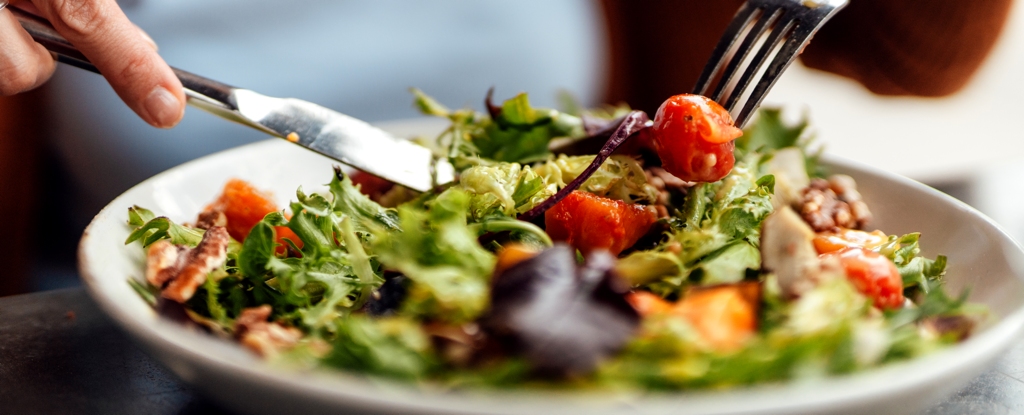
Not a fan of salads? That’s perfectly fine; the culinary world offers a multitude of foods with various preparation methods.
Considering that almost everyone falls short on vegetable consumption, even though a majority (81%) is aware that increasing vegetable intake is a straightforward way to enhance our health, it might be worth a try.
If the thought of this doesn’t bring you joy, don’t worry; with time and a bit of effort, you can develop a positive relationship with salads.
Why don’t I like salads?
It’s an interesting aspect of evolution that, while vegetables offer significant health benefits, not all of them have an instantly appealing taste for everyone. Our taste preferences have evolved to favor the sweet or umami (savory) flavors found in higher-energy foods, as the immediate threat of starvation takes precedence over long-term health concerns.
While vegetables may not be high in energy, they are loaded with dietary fiber, vitamins, minerals, and health-promoting compounds known as bioactives.
The bitterness in vegetables comes from bioactives, also known as phytonutrients, which plants produce to defend themselves against environmental stress and predators. Ironically, the very compounds that contribute to the bitter taste in plant foods are the ones that offer health benefits for us.
Regrettably, the evolution of a bitter taste served as a defense mechanism against poisons and potentially over-consuming a single type of plant food. Hence, in a sense, plant foods may have a taste reminiscent of poison.
For some individuals, the perception of bitterness is particularly strong, while for others, it’s not as pronounced. This difference is partially attributed to our genetic makeup. With at least 25 distinct receptors responsible for detecting bitterness, each person possesses a unique genetic combination. Consequently, some people are highly sensitive to certain bitter compounds, while others struggle to detect them.
Our genetic makeup gives us different starting points in our relationship with salads and veggies. Therefore, it’s crucial to be patient with yourself. Regardless of your starting point, the steps toward cultivating a liking for salads and veggies remain the same.
It takes time
We can train our taste preferences because our genes and receptors don’t dictate the whole story. Repeated exposure to bitter foods aids in our adaptation over time. This repetition helps our brain understand that bitter vegetables aren’t adversaries.
As we modify our dietary habits, the enzymes and other proteins in our saliva change as well. This alteration affects how various compounds in food are broken down and perceived by our taste buds. The exact mechanism is not entirely clear, but it resembles other forms of behavioral cognitive training.
Add masking ingredients
The encouraging news is that we can employ numerous effective strategies to disguise the bitterness of vegetables, thereby providing positive reinforcement for our taste training.
Salt and fat can diminish the perception of bitterness, so incorporating seasoning and dressings can instantly enhance the taste of salads.
You might be wondering, “But don’t we need to reduce our salt and fat intake?” – indeed, you’ll achieve more nutritional benefits by reducing these in discretionary foods like cakes, biscuits, chips, and desserts, rather than attempting to avoid them when seasoning your vegetables.
Introducing spiciness with chilies or pepper can also be beneficial, acting as a diversion from the bitterness. Incorporating fruits into salads not only adds sweetness and juiciness but also enhances the overall flavor and texture balance, making the experience more enjoyable.
Combining foods you are in the process of acquiring a taste for with foods you already enjoy can also be beneficial, as suggested by studies.
The variety of salad options is nearly limitless. If the traditional garden salad from your upbringing isn’t to your liking, that’s perfectly fine—keep exploring different possibilities.
Experimenting with texture (such as chopping vegetables smaller or chunkier) can also assist in discovering the salads that resonate with your taste preferences.
Challenge your biases
Addressing your biases can also positively impact your relationship with salads. The “unhealthy-tasty intuition” phenomenon leads us to believe that delicious foods are unhealthy, while healthy foods are unappetizing. Overcoming this assumption can enhance your enjoyment of vegetables.
When researchers applied taste-focused labels to vegetables, setting the expectation for an enjoyable taste, participants were more likely to savor them compared to when they were informed about their health benefits.
The bottom line
Vegetables offer numerous health benefits, and as we strive to incorporate more into our diet, it’s essential to be patient and compassionate with ourselves.
Embrace collaboration with biology and the brain, rather than opposing them.
Avoid passing judgment on yourself or others if they don’t share your enthusiasm for the salads you enjoy. We are all at different stages in our taste-training journey.
This article has been republished from The Conversation under a Creative Commons license.





